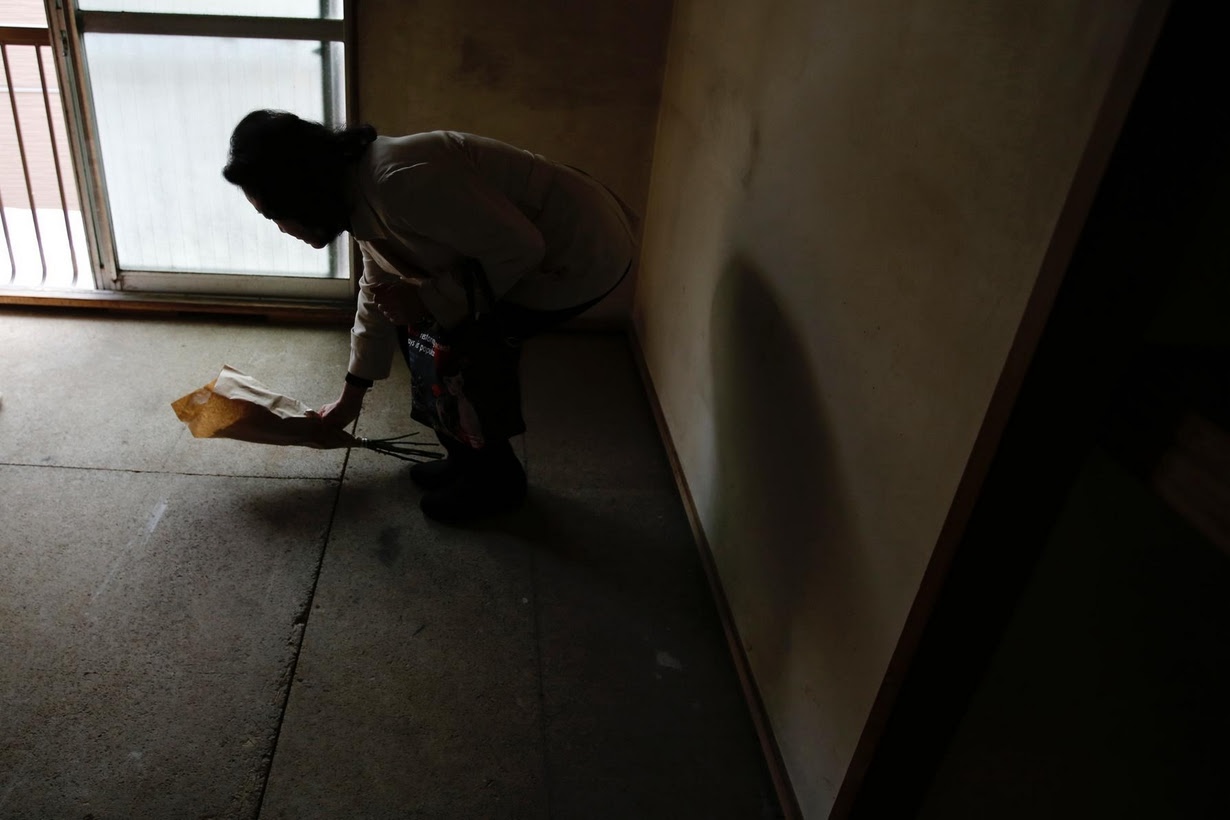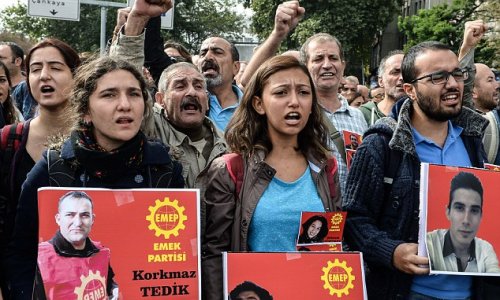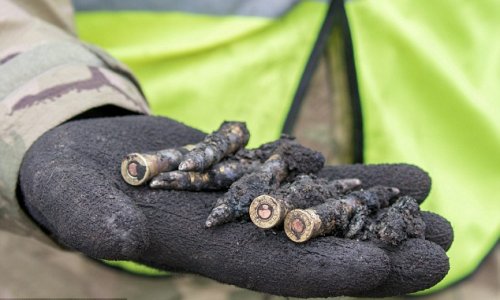In rapidly ageing Japan, more people are dying alone and unnoticed. Looser family bonds play a role in older people’s isolation.
In March, the body of a man in his 80s was found on the floor of his apartment in Tokyo. He had been dead for a month. Here, the apartment’s landlord, Yoshie Fukuhara, 77, places flowers where the body was found and prays for the deceased.
The bathtub and toilet are seen in the garbage-filled apartment where the man’s body was discovered.
The deceased man’s bank made the rent payments on time and his family didn't visit. The only reason for the body's discovery was the slight smell that troubled the tenant in the property below.
For these so-called "lonely deaths", families and landlords in Tokyo are increasingly turning to Hirotsugu Masuda and his clean-up crew to cleanse apartments where the occupant's body has lain undiscovered for days or weeks.
"This has started becoming a bit more common in the world and it's become more recognised that there's this sort of job," said Masuda. His services are needed 3-4 times a week in summer when bodies decompose more quickly.
When Masuda's team turns up at the Tokyo apartment, police have taken away the corpse but body fluids have seeped into the floor. Flies buzz around a cooker filled with rice. Old calendars and papers are scattered in rooms that look to have been untouched for years.
Workers wearing protective gear spray the apartment with insect repellent, using gloved hands to pack the trash in boxes. The six-hour exercise is conducted discreetly to avoid upsetting the neighbours. The crew tells onlookers they are moving house.
When the workers have finished, incense and flowers are placed where the body was found, with the man's photo put where his head had lain.
Masuda's firm works almost exclusively on "lonely deaths", charging between 81,000 yen ($674) and 341,000 yen ($2,838) depending on the apartment’s size.
(reuters.com)
ANN.Az






www.ann.az
Follow us !











